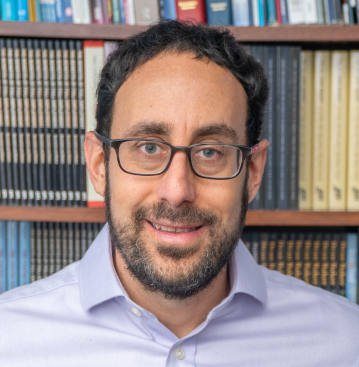
Congress should adopt stronger restrictions on former federal officials’ ability to lobby their old employers.
Suppose a federal agency employee works on a policy matter that affects a multi-billion-dollar industry. Could that same person quit his government job and just a few weeks later take a private sector job representing the same industry on the same policy matter that he worked on for the government?
It turns out that the answer is “yes.” A loophole in federal ethics laws allows such revolving-door abuses. And sometimes the results of these abuses can be tragic.
Consider the current public health crisis involving dangerous vaping products.
The Office of Management and Budget (OMB) oversees the development of new regulations on behalf of the President and, due to its fierce anti-regulatory culture, it often provides a sympathetic ear to industry lobbyists seeking to block or weaken those rules. Government records show that, on April 1, 2014, Andrew Perraut, then an OMB policy analyst, met with three representatives from Cigar Rights of America who were apparently concerned about a draft rule that would extend the Food and Drug Administration’s (FDA) regulatory authority to e-cigarettes, cigars, and other tobacco products.
By our count of government meeting logs, the April 1st meeting was at least the 34th meeting that Perraut had attended about this proposed rule while it underwent standard OMB review. Three-quarters of those meetings were with tobacco companies or related special interest groups.
In August 2014, Perraut would leave his job at OMB and start his own consulting company. Then, in 2015, he began attending meetings again on the same FDA rule while it was undergoing a second round of White House reviews—including one meeting for which he is identified in meeting logs as representing Cigar Rights of America and other meetings for which, according to the Los Angeles Times, he was representing members of the tobacco industry.
After many reported meetings with representatives of the tobacco and vaping industries, OMB officials, with the political backing of the Obama White House, reportedly blocked the FDA’s efforts to ban flavored e-cigarettes that would be especially appealing to children. When the FDA published its final tobacco rule in May 2016, provisions covering flavored e-cigarettes were notably absent.
Public health officials now believe that the ensuing regulatory vacuum became a major contributing factor to the skyrocketing use of e-cigarettes among teenagers. A recent survey found that one-quarter of high school seniors had vaped at least once in the last 30 days. At last count, the current vaping-related health epidemic has already claimed 37 lives and contributed to 1,888 cases of mysterious lung disease.
The most relevant federal ethics law addressing post-employment conflicts of interest generally permanently bars former executive branch employees from representing anyone before the federal government regarding any “particular matter” that “involved a specific party or specific parties” on which those former employees participated “personally and substantially” in their official capacity. The Office of Government Ethics (OGE) has said that the purpose of this law is “to prevent former government employees from leveraging relationships forged during their government service to assist others in their dealings with the government.” But whether the law achieves this goal depends on how its key terms are defined.
Although the statute defines a “particular matter” as including rulemakings, it does not define what constitutes a “specific party or parties.” OGE has filled that gap by narrowly defining the concept of “particular matter involving a specific party or parties” so as to exclude generally applicable regulations such as the FDA e-cigarette rule. Excluded is “rulemaking of general applicability and the formulation of general policies, standards or objectives, or other matters of general applicability are not particular matters involving specific parties.” Thus, under this definition, agency actions such as grants or contracts would be covered by federal ethics laws, while most forms of regulations would not.
So, had an OMB analyst worked as a federal employee on even a paltry contract, say to buy $100 worth of pencils from an office supply company, he would likely have been prohibited from participating in any meetings about that purchase after leaving the federal government. But his participation in reviewing a major rule affecting a multi-billion industry does not preclude him from later representing the industry on the same rule.
Regardless of whether this “rulemaking” loophole made sense when OGE first adopted its narrow interpretation, it clearly does not now. Many regulated industries have become dominated by a few large businesses, such that the interests of the industry as a whole are practically indistinguishable from those of its specific members.
It is unclear whether OGE has the authority to update its existing regulatory definition of “particular matter involving a specific party or parties” to reflect this new reality by removing the exclusion for “rulemaking of general applicability.” Because of this, Congress should step up and amend federal ethics laws to close this loophole. The proposed Anti-Corruption and Public Integrity Act, for example, would bar former agency employees from all lobbying activities before their old offices for at least two years after they leave the government.
Alternatively, Congress could strengthen the permanent bar on lobbying on matters in which former agency employees participated by clarifying that the definition of “specific party or parties” encompasses regulations. Either of these changes might go a long way toward preventing former regulators from unduly leveraging their experience to change the shape of regulations on industry.





